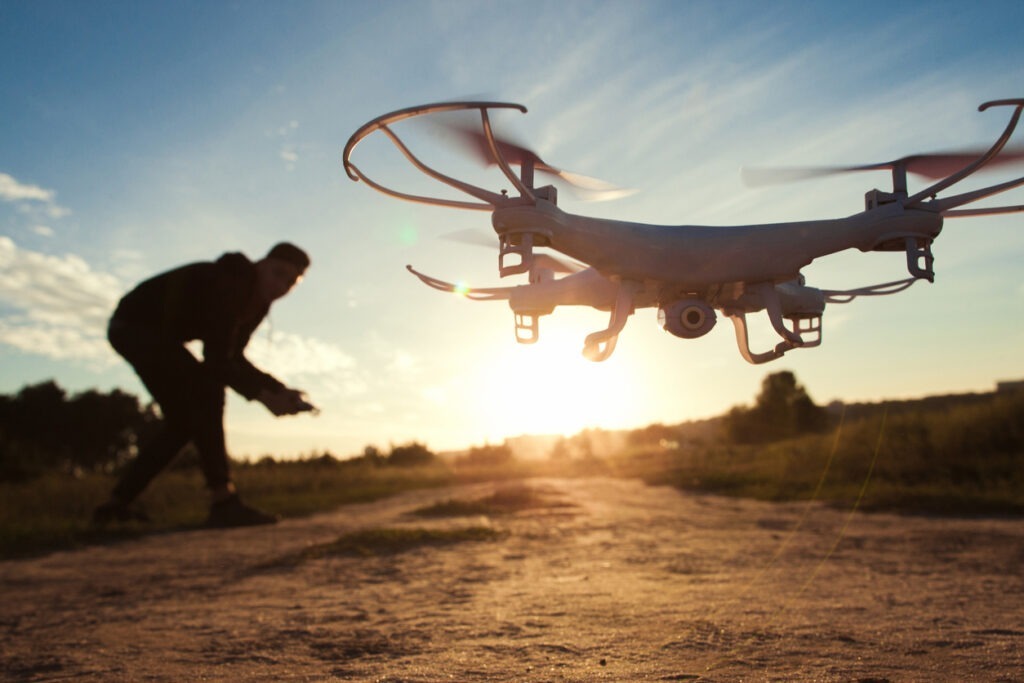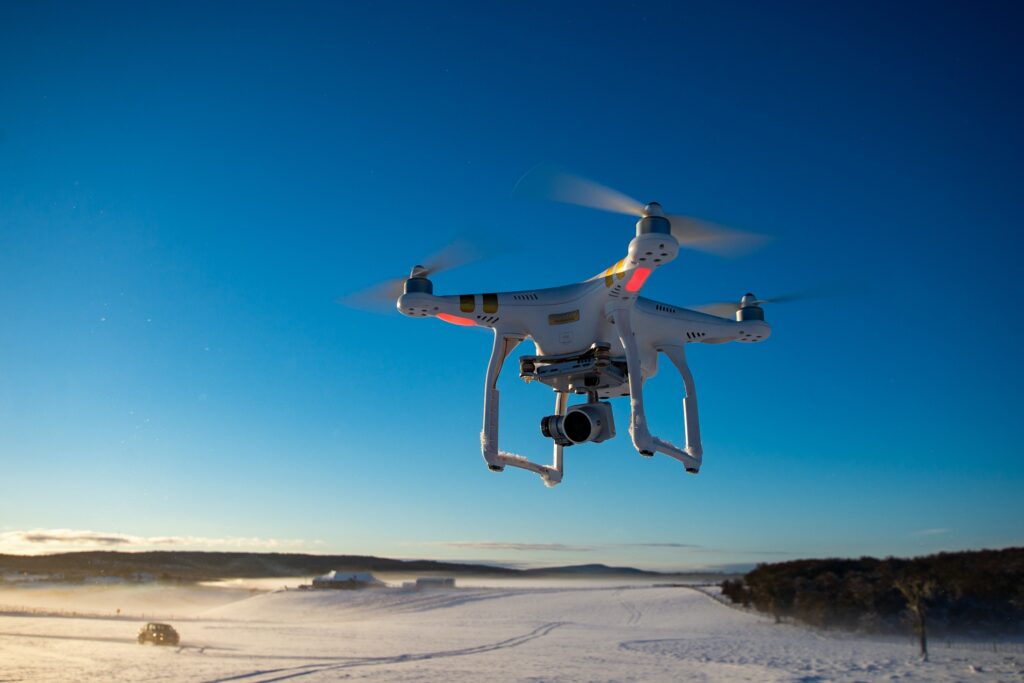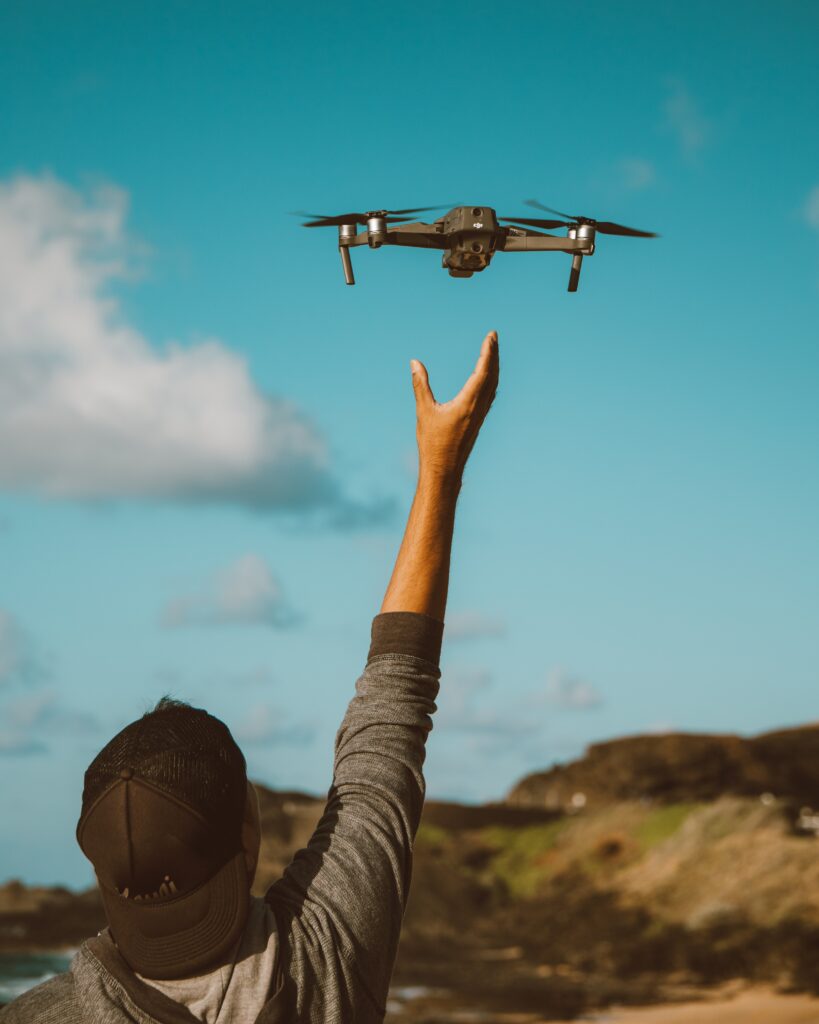Drone batteries are the lifeblood of this aerial machine. How long the average drone battery last determines how far and high a drone can go. Therefore, the best battery for your drone is the one that suits your needs. If flight time is your top priority, the mass of the drone needs to be smaller in order to maximize battery capacity. The reason behind this is that the battery power is dependent on energy density and mass. However, if power and speed are your top priorities, you will want a battery that can deliver high amounts of charge quickly, and without overheating, so you’re looking for a high voltage and C rating.
Interestingly, deciding on what hobby drone battery to buy because of its battery life is crucial. It determines the performance, endurance, and length of time your drone can stay suspended in the air to accomplish its task whether for photography, aerial inspection, mapping, and rescue.
Four types of drone batteries
The market has four drone battery types based on quality, cost, and performance. These are Lithium-Polymer, Nickel Cadmium, Lithium High Voltage, and Brand Specific. 1. 1. 1. 1.
1. Lithium-Polymer
Lithium-Polymer or LiPo batteries are the most common type of drone battery. It is made of a lithium-based cathode and anode separated by a solid polymer electrolyte, according to Lauren Nagel of Tyro Robotics.
This type is usually the first option when people need long-lasting batteries because of its high-power supply. It has a 4.2V power voltage and also it is environmentally friendly.
The battery capacity of the LiPo is given in mAh or Ah. These defines the number of hours of current or power the battery can provide. This is the best gauge to estimate your drone’s flight time. The battery can power up to 300 to 500 and last up to three years if given tender loving care. It stores charge longer and takes a longer time to degrade, making it one of the more durable types of drone batteries around. It may be more expensive than the rest of the battery types, but it can assure you longer flight time!
2. Nickel Cadmium
NiCad is a predecessor of LiPo. Although efficient and popular in the old days because it is cheap, powerful, has a low internal resistance, is durable, and with a stable working voltage of 1.2V, this has been slowly faced out in the market. The reason behind this is that Cadmium is a toxic metal and, when discharged in a landfill, could be hazardous to organic life. It also has minimal energy capacity making it unable to hold a charge for long and thus is not able to discharge energy as fast as a LiPo.
3. Lithium High Voltage
LiHv has an energy of 4.35V, which drops when discharged. This is the most common battery used in nano hobby drones.
4. Brand Specific
Drone manufacturers also have brand-specific drone batteries. You cannot switch and match this one.
The battery life of drones
Drone batteries last, depending on the drone’s quality. Typically, the battery life of high-quality professional drones is around 20-30 minutes because it has a more powerful battery. Mid-range drones can stay up in the air for about 15 minutes, while lower-quality hobby drones last about 10 minutes.
Regardless if you are using a charging hub or a USB charging cable, charging times is about 60 to 90 minutes to charge drones.
Mid-range drones have bigger batteries and take longer to charge than high-end ones. It usually takes an hour longer to charge a mid-range drone than a high-end one which takes an average of 80 minutes for its battery to be full.
Your drone controller also needs to be charged. They are usually powered by an AA battery and can be rechargeable or not. If it is rechargeable, the charging time is longer, but it does not quickly run out of charge.
Factors that can affect drone’s battery
There are several factors that can affect how long the average hobby drone’s battery life last and charging time. This includes the type of battery, age, condition, and size.
1. Size of battery
Large drones have larger batteries which give it higher capacity and longer flight time. However, the charging time is also longer. Heavier batteries could also cause drag and drains the battery faster.
2. Charging method
The charging system also affects the amount and power of a drone’s battery. A USB cable can charge a battery up to 18 watts, while a dual charging hub delivers up to 29 watts of power, making the latter faster and more powerful.
3. Temperature settings
Areas with high temperatures can degrade the quality of your battery. It can negatively affect the performance of your battery. Frozen drone batteries are of no use because the chemical contents are altered.
Tips to make your hobby drones battery last longer
- Do not skimp on buying quality drone batteries for your hobby drone. If your current one is disappointing, consider an upgrade.
- Fully charge all your batteries before an expected flight. This gives you a clear average length of flight time.
- Carry backup batteries, so your work does not need to stop when your battery does. This is particularly important when you are working with elements of nature, like chasing a sunrise or a sunset.
- Do not uninstall a battery immediately after a flight to charge. Allow your battery to cool down before recharging.
- Turn off the drone first before removing the battery. Once the battery is removed, turn off the controller. If you want to recharge midflight, turn off the drone before charging.
- When installing a drone battery, turn on the controller first, then install the drone battery. After the installation, you can now turn on the drone battery.
- Ensure that your drone battery is at least 65% charged when storing it. Do not store a drone with a full or empty battery, as this can damage both the drone and the battery.
- Look for a cool and dry place.
Conclusion
Overall, determining how long the average hobby drone battery lasts starts with understanding the different types of batteries and their characteristics. This includes the discharge rate, battery capacity, and voltage. The flight time, ability to deliver strong burst of power and the propulsion system should also be taken into consideration. All of these will help you narrow down and find the best hobby drone battery.



